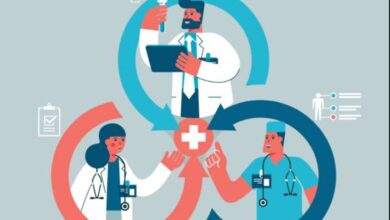
Health advisers play a critical role in advancing public health efforts and fostering favorable health outcomes in the United States. They address health challenges, designing effective strategies, and disseminating vital health information.
We aim to discover more about how a US health advisor can contribute to public health’s overall promotion and enhancement by looking at their expertise, influence, and impact. Here are their specific roles:
Read Also: 8 Ways For Supporting Loved Ones in Mental Health Crisis
1. Community Engagement and Empowerment
Health advisors actively seek to understand the unique health needs and challenges varying communities and population groups face.
Most importantly, they open doors for cooperation and involvement in public health by developing relationships with local authorities, groups, and people. Also, they promote active participation in decision-making, program creation, and implementation through community engagement.
As they give communities the tools, knowledge, and assistance they need to take control of their health and well-being, they empower those communities.
With this strategy, public health interventions are personalized to the community’s unique requirements, improving health outcomes and fostering long-lasting behavior change.
2. Policy Development and Advocacy
Health advisers are unavoidable when creating public health policies and lobbying efforts in the United States. They collaborate closely with legislators at all levels, including local, state, and federal ones, to draft rules and laws that prioritize communities’ welfare.
Furthermore, to ensure that the most up-to-date scientific knowledge supports policies, health advisers use their experience and expertise to offer suggestions on public health concerns supported by evidence.
These health experts support laws that deal with health inequalities, expand healthcare options, and encourage preventive actions.
Lastly, they create a climate that supports public health initiatives and interventions through their involvement in policy creation and advocacy, eventually resulting in better health outcomes for all.
3. Health Education and Promotion
The US health advisor develops and implements programs, campaigns, and interventions to educate the public about health issues, prevention strategies, and healthy lifestyle choices.
Health advisors utilize evidence-based approaches to deliver clear and accurate health information to diverse populations.
In addition, they conduct workshops, community events, and outreach activities; they empower individuals and communities to make informed decisions about their health.
Health experts collaborate with schools, workplaces, and community organizations to create supportive environments that foster healthy behaviors and promote positive health outcomes.
Through health education and promotion efforts, they reduce health disparities and improve overall population health.
4. Disease Prevention and Control
To develop comprehensive disease surveillance, preventive, and control programs, health consultants work with medical professionals, governmental agencies, and local community groups.
Health advisors actively engage in activities including conducting health screenings, encouraging vaccines, and putting in place targeted therapy in order to decrease the symptoms of chronic illnesses and limit the progression of infectious diseases.
Creating action plans and coordinating actions during epidemics or disasters also support public health emergency preparation.
Health advisers help ensure a healthier and safer society by promoting community health and halting the spread of disease through their knowledge and work.
5. Health Data Analysis and Surveillance
Health advisors collect, analyze, and interpret health data to identify trends, patterns, and emerging health threats.
When they use advanced analytical techniques, health advisors provide insights that inform decision-making processes and guide the development of targeted interventions.
They collaborate with epidemiologists, researchers, and public health agencies to monitor disease outbreaks, assess the impact of interventions, and evaluate the effectiveness of public health programs.
Through their expertise in health data analysis and surveillance, health advisors contribute to the early detection of health threats, resource allocation, and evidence-based decision-making to improve population health outcomes.
6. Emergency Preparedness and Response
Health experts contribute to developing emergency response plans, coordinating response efforts, and providing timely and accurate information to the public.
Health advisors collaborate with various agencies, healthcare providers, and community organizations to implement strategies for emergency preparedness, such as vaccination campaigns, risk communication, and resource allocation.
Their expertise and coordination efforts enhance the capacity to protect public health during times of crisis, safeguarding communities and minimizing the impact of emergencies on population health.
In Conclusion
In conclusion, health advisors are pivotal in shaping the future of public health in the United States, from policy development and community empowerment to disease prevention and health education. Their contributions lead to healthier communities, more informed decision-making, and more effective health interventions.
For individuals seeking personalized health services, a Medical Spa offers a unique opportunity to benefit from expert health guidance, combining wellness, education, and preventive care.
Whether you’re looking to improve your overall well-being or manage specific health conditions, a Medical Spa can provide the support and treatments tailored to your needs.







